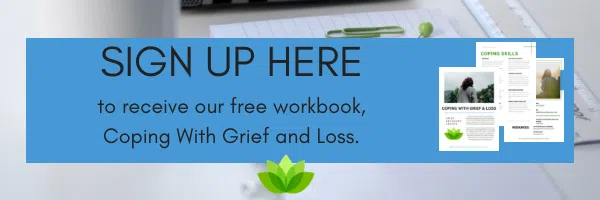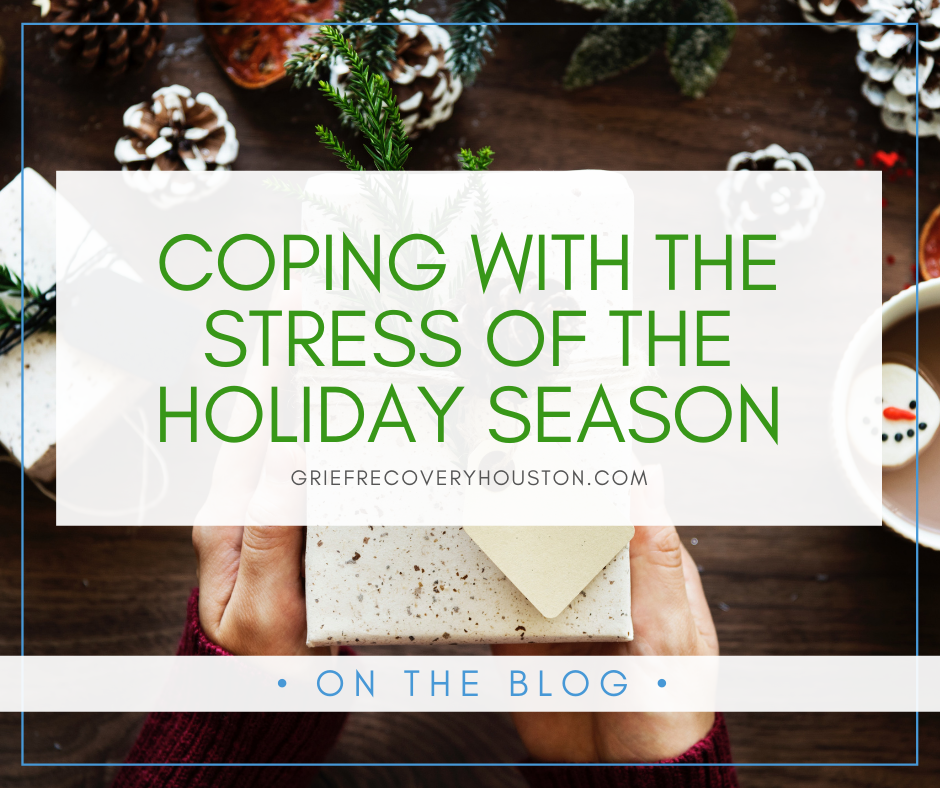- Unpacking Grief and Disability - July 8, 2024
- Breaking the Stigma: 5 Blogs to Better Understand Suicide - May 21, 2024
- 4 Tips for Better Sleep Hygiene - March 4, 2024
 We’ve discussed a variety of different types of grief on the blog in recent months – career-related grief, pet loss, and moving grief, to name a few. Today, we’re talking about another specific type of grief: divorce grief.
We’ve discussed a variety of different types of grief on the blog in recent months – career-related grief, pet loss, and moving grief, to name a few. Today, we’re talking about another specific type of grief: divorce grief.
The end of any kind of relationship can bring up a whole host of emotions, whether it ends well or not. The end of a marriage is no different – divorce is one of the most stressful and emotional events a person can experience. Even putting aside various reasons for divorce (financial issues, infidelity, growing apart, etc.), the end of a significant relationship can be extremely draining.
Read: Grieving Relationships We Didn’t Have
Some of the emotions that might come up during the divorce process are:
- Disappointment
- Shame
- Anger
- Fear
- Shock
- Sadness
- Loneliness
- Despair
- Confusion
Of course, the above list isn’t complete – you may feel emotions other than these, and that’s okay. Your feelings are valid, and try to be gentle on yourself for what you feel. You are already going through enough without beating yourself up over your own feelings.
When you go through a divorce, you also need to go through the grieving process for your partner, for your relationship, and for the life that you had up until now with your partner. It’s okay to grieve all of these things and more. After all, you have experienced a great deal of upheaval that you may need to make peace with.
Read: Benefits of Talking About Grief

You may feel the need to grieve:
- The relationship you used to have
- The relationship you thought you had
- Your plans together
- Your feelings for this person
- The home you shared with this person
- Your commitments to one another
- The things you love about your partner

Let your emotions out
Don’t judge yourself for what you are feeling during the divorce process. Your feelings are valid, and you are allowed to express them. Even if you don’t feel comfortable talking to another person about it, try to get your emotions out. You can journal or even speak your thoughts aloud, but it is important to acknowledge that what you are feeling is okay. There is no right or wrong way to feel during a divorce, so take the pressure off of yourself.
You aren’t alone
Don’t try to go through this process alone. Tell your friends and family what you’re going through so they can be there for you. If you don’t have the energy to tell the story over and over, ask a close friend to relay the message along to everyone. When your friends and family offer to help, take them up on it! Even just spending time in someone else’s silent company can be a balm for grief. If your friends and family aren’t nearby or aren’t an option, try to find an online community. Online support groups and forums can be extremely generous, helpful, and make you feel less alone.
Read: How to Practice Self-Care during Divorce
Know you won’t always feel this way
When you’re in the throes of grief, it might feel like you’ll never be happy again. You might worry that you’ll never find love again or rebuild your life so you can be happy. Remember the old saying: this too shall pass. It might be hard or even impossible to picture, but there will be a time where you don’t feel this way.
Getting your heart broken is awful. But when it comes to how to get over a broken heart, there are a few ways to make the process easier: 5 Ways to Cope with the Grief of a Broken Heart
Get into a routine
Divorce can bring up a whirlwind of emotions and changes in your life – changes to living situation, to income, to lifestyle, to everything in between. Try to minimize the other stress in your life by sticking to a routine in your day to day. If you know what to expect from your day, you have one less thing to worry about.

Know when it’s time to reach out for help
Grief is a hard road to navigate on your own, even if you have a strong support system in your life. Sometimes, the perspective and support of a trained counselor can give you the tools you need to move through your grief and into the next stage of your life after divorce. If you are concerned that your grief isn’t easing up at all, even after some time, you might be dealing with depression instead. If you are concerned that you are depressed, reach out to a therapist for help. Our therapist can help you manage your depression and work through your grief and anything else that comes up during the divorce process.
Join a divorce support group in Houston, TX to find a safe and supportive community of individuals who have gone through or are currently experiencing divorce. Connect with others who understand what you’re going through, gain valuable insights and advice, and navigate the emotional and practical aspects of divorce together.






Divorce Sucks
I’m feeling remorse and grief right now and have been for a week or more. My wife of 17 years filed for divorce and she said she wanted her space and experience being single because she never got to because she had kids at a young age. Then I met her we got married and had a child that we raised to be a teenager. My heart so bad because I failed at being the husband she deserves we had a toxic marriage that continued to get worse each day of our marriage. I love her so much that I pray that God will bring her back to me so we can start over and love each the right way God’s way!